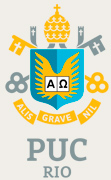Vol. 35, Nº 2, 2013
Sobre os autores
Authors
Ana Paula Tostes holds a postdoctoral from the University of São Paulo (USP) (2007) and works as Coordinator of the Postgraduate Program in International Relations of State University of Rio de Janeiro (UERJ). She also works as a professor of the Social Sciences Department in the same institution.
Eduardo Pastrana Buelvas holds a doctorate degree in International Law from University of Leipzig, Germany, and is Lawyer from Universidad Santiago de Cali (USC), Colombia. Currently he is a professor at Pontificia Universidad Javeriana in Bogotá (PUJB), and Director of the Department of International Relations of the Faculty of Political Sciences and International Relations. He heads the research group of International Relations, Latin America and Integration (GRIALI), and is editor-in-chief of the academic journal Papel Político.
Elena Lazarou holds a Ph.D. in International Relations from the University of Cambridge. Dr. Lazarou is Head of the Centre for International Relations of the Getulio Vargas Foundation (FGV) and Assistant Professor at FGV’s School of Social Sciences (CPDOC). Her interests include European Studies, Foreign Policy Analysis and Regional Integration.
Kai Lehmann holds a Ph.D. in International Relations from the University of Liverpool. Currently he is a professor at the Institute of International Relations of University of São Paulo (USP), São Paulo, Brazil.
Krishnendra Meena is an assistant professor at the Centre for International Politics, Organization and Disarmament (CIPOD), School of International Studies, Jawaharlal Nehru University, New Delhi since 2004. He has been teaching M.A. and M. Phil courses on Political Geography, Advanced Political Geography and Geographical Information Systems and has designed a course on Concepts and Issues in Geopolitics for M. Phil students at CIPOD.
Layla Dawood holds a Ph.D. in International Relations from the Catholic University of Rio de Janeiro (PUC-Rio). Currently, she is a professor at the Federal Rural University of Rio de Janeiro (UFRRJ). Her areas of interest include International Relations Theory and International Security, with emphasis on the defense policies of the U.S. and China, nuclear proliferation and deterrence.
Mônica Herz is an associate professor in the Institute of International Relations at the Pontifical Catholic University of Rio de Janeiro (IRI/PUC-Rio). She has a Ph.D. degree from the London School of Economics and Political Science and has written three books: Organizações internacionais: histórias e práticas (co-author Andréa RibeiroHoffman;Rio de Janeiro: Elsevier, 2004), Ecuador vs. Peru: Peacemaking Amid Rivalry (co-author, João Pontes Nogueira; Boulder Colorado: Lynne Rienner Publishers, 2002), and OAS Global Governance Away From the Media (Routledge, 2010), apart from several articles and chapters on Latin American security, nuclear and regional governance and Brazilian foreign policy.
Paulo Roberto de Almeida is a career diplomat, Ph.D. in Social Sciences Free University (University of Brussels, 1984), and professor of International Political Economy in the graduate programme in Law at the University Center of Brasilia (Uniceub). Deputy Editor of Revista Brasileira de Política Internacional, has many published works in international relations, diplomatic history, foreign policy of Brazil and integration (www.pralmeida.org).
Renata Keller is an assistant professor of International Relations at Boston University and holds a Ph.D. in History from the University of Texas at Austin. Her research and teaching interests focus on Latin American history, particularly the connections between foreign and domestic politics, the dynamics of the Cold War, and U.S. relations with Latin America.
Thomas Legler is a research professor of International Relations at the Universidad Iberoamericana in Mexico City and a member of the Mexican National System of Researchers (SNI, level 2). He is co-editor of the textbook Introducción a las Relaciones Internacionales: América Latina y la Política Global (México, Oxford University Press, 2013).
 Instituto de Relações Internacionais
Instituto de Relações InternacionaisRua Marquês de São Vicente, 225 - Vila dos Diretórios, Casa 20, Gávea - Rio de Janeiro - RJ, Brasil
Tel/Fax: +55 21 3527-1557 3527-1558 3527-1560

